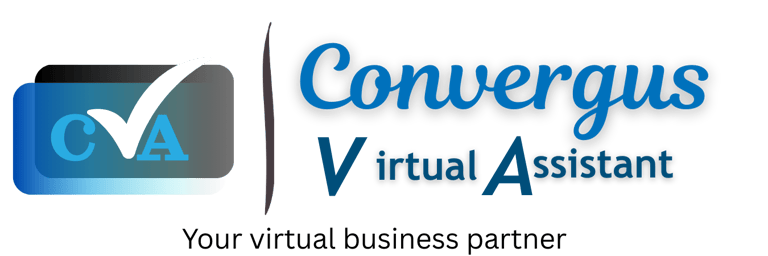FAQ: Michigan Earned Sick Time (ESTA) for Small Businesses
If you are a small business owner, eligible employees begin to accrue earned sick time on October 1, 2025, or upon hire, whichever is later.
Mildred White
10/13/20256 min read


Q: What employers are considered a "small business" under the Earned Sick Time Act (ESTA)?
An employer is considered a “small business” if it employs 10 or fewer employees within the United States or its territories. This count includes full-time, part-time, and temporary employees, including those provided through a temporary service or staffing agency or similar entity.
Owners that are employees of the employing entity are included in this count. Owners that are not considered employees are not included.
Q: When does a small business have to start complying with the ESTA?
For a small business that did not employ an employee on or before February 21, 2022, the requirement to comply with the act is delayed until 3 years after the date that the employer first employs an employee. For example, if you started your small business and hired your first employee in October 2024, you would need to comply starting in October 2027.
For all other small businesses, eligible employees begin to accrue earned sick time on October 1, 2025, or upon the commencement of the employee’s employment, whichever is later.
Q: Which employees of my small business are eligible for earned sick time?
An eligible employee is an individual engaged in service to an employer in the business of the employer. Michigan case law uses the economic reality test to determine whether an individual is an employee.
Exemptions include those employed by the U.S. government, unpaid trainees or unpaid interns, and individuals employed in accordance with the Youth Employee Standards Act 1978 PA 90.
Also exempt is an individual who works in accordance with an employer policy that allows the individual to schedule their own working hours and prohibits the employer from taking adverse action if the individual does not schedule a minimum number of working hours. However, this exemption does not generally cover on-call, flexible scheduling, or per diem employees if the employer controls the schedule.
Q: How much earned sick time do employees of a small business accrue?
Hourly Employees: Employees of a small business accrue a minimum of one hour of earned sick time for every 30 hours worked. However, the employee is not entitled to use more than 40 hours of paid earned sick time in a calendar year, unless the employer selects a higher limit.
Salaried Employees: Salaried employees exempt from overtime requirements under the Fair Labor Standards Act are assumed to work 40 hours in each workweek for accrual purposes, unless their normal workweek is less than 40 hours, in which case accrual is based on their normal hours. Similar to hourly employees at a small business, the employer may limit the use of paid earned sick time to 40 hours per year, unless a higher limit is chosen.
Q: Can I provide the total amount of earned sick time at the beginning of the year (frontloading)?
Yes, frontloading is permitted as an alternative to the accrual method. The hours must be available for immediate use.
For full-time employees (normally 40 hours or more per week), you may frontload at least 40 hours of earned sick time at the beginning of the benefit year or on the date of hire (prorated).
For part-time employees (normally working less than 40 hours per week), you may frontload less than 40 hours if you provide written notice of their expected yearly hours at the time of hire, and the frontloaded amount is at least proportional to what they would accrue if they worked all expected hours. If the employee works more hours than expected, you must provide additional earned sick time based on the accrual rate.
If you frontload, you are not required to allow carry over of unused sick time to the next benefit year, calculate and track employee’s accrual, or pay out the value of employee’s unused sick time.
Q: If I use the accrual method, can employees carry over unused sick time?
Yes, if you are using the accrual method, employees shall be allowed to carry over up to 40 hours of unused earned sick time from one benefit year to the next. If you use this method, you must calculate and track employee accruals.
Q: Is there a waiting period before new employees can use accrued sick time?
If you use the accrual method, you may require a new employee, hired on or after February 21, 2025, to wait until the 120th calendar day after commencing employment before using accrued earned sick time. This waiting period does not apply if you are frontloading earned sick time benefits.
Q: Do I have to pay out unused earned sick time when an employee leaves?
No, the ESTA does not require you to pay out unused accrued earned sick time at separation. However, the Payment of Wages and Fringe Benefit Act may require payment based on your written policy or contract. You may choose to pay out unused sick leave annually or at termination instead of allowing carryover, but if an employee is rehired within 2 months, you would typically reinstate their previously accrued time unless it was paid out.
Q: For what reasons can employees use earned sick time?
Employees can use earned sick time for:
Their own or a family member’s mental or physical illness, injury, or health condition; medical diagnosis, care, or treatment; or preventative medical care.
If the employee or a family member is a victim of domestic violence or sexual assault, for related medical, psychological, or legal needs, victim services, or relocation.
Meetings at a child’s school or place of care related to the child’s health, disability, or the effects of domestic violence or sexual assault.
Closure of the employee’s place of business or the child’s school/care facility due to a public health emergency, or if the employee’s or a family member’s presence in the community would jeopardize the health of others due to a communicable disease.
You cannot require an employee to search for or secure a replacement worker as a condition for using earned sick time.
Q: How much notice can I require when an employee needs to use earned sick time?
If the need for earned sick time is not foreseeable, you may require the employee to give notice as soon as practicable. You may also have a written policy for unforeseeable leave notification that the employee must follow, provided you gave them a copy of the policy (or any changes) and it allows for notice after the employee is aware of the need for leave.
If the need for earned sick time is foreseeable, you may require advance notice not to exceed 7 days before the date the leave is to begin.
Q: Can I require documentation for an employee's use of earned sick time?
For earned sick leave of more than three consecutive days, you may require reasonable documentation that the leave has been used for a permissible purpose. The employee must provide this within 15 days of your request. The documentation should not include details of the illness or violence, and you are responsible for paying any out-of-pocket expenses the employee incurs to obtain it. You cannot delay the start of leave based on a failure to receive documentation.
Q: Do I have to keep an employee's health information private?
Yes, you must maintain the confidentiality of health, domestic violence, and sexual assault information about an employee or their family member and cannot disclose it to others without the employee’s permission.
Q: What are my recordkeeping and notice requirements under the ESTA?
You must retain records that document the hours worked and earned sick time taken by employees for not less than three years. These records must be available to the Wage and Hour Division upon request.
You are also required to provide written notice of an employee’s rights under the ESTA at the time of hiring or on March 23, 2025, whichever is later. This notice requires specific information found at www.michigan.gov/wagehour.
You must also display Earned Sick Time Act - Required Poster at your place of business containing specific rights listed in the ESTA. The Department will create this poster, which can also be found at www.michigan.gov/wagehour.
Q: What happens if I violate the Earned Sick Time Act?
In addition to civil remedies for employees, an employer who fails to provide earned sick time is subject to a $1,000 administrative fine, and potentially an additional civil fine up to 8 times the employee’s normal hourly wage. An employer who willingly violates the posting requirement is subject to a $100 administrative fine for each separate violation.
Please Note: This information is not legal advice and is subject to change at any time. You may want to consult with an attorney or refer to the official resources provided by the State of Michigan at www.michigan.gov/wagehour for more detailed guidance.
Source:
https://www.michigan.gov/leo/bureaus-agencies/ber/wage-and-hour/paid-medical-leave-act
contact@convergusva.com
616-795-0928
© 2025 ConvergusVA. All rights reserved.
Call us:
Email us:


Follow us:
Your virtual business partner
Disclaimer: We are neither a licensed tax nor accounting firm and do not provide tax advice. Additionally, we are not a staffing agency or a Professional Employer Organization (PEO) and cannot offer legal guidance. For legal inquiries, please seek advice from a licensed employment law attorney.
Quick Links
